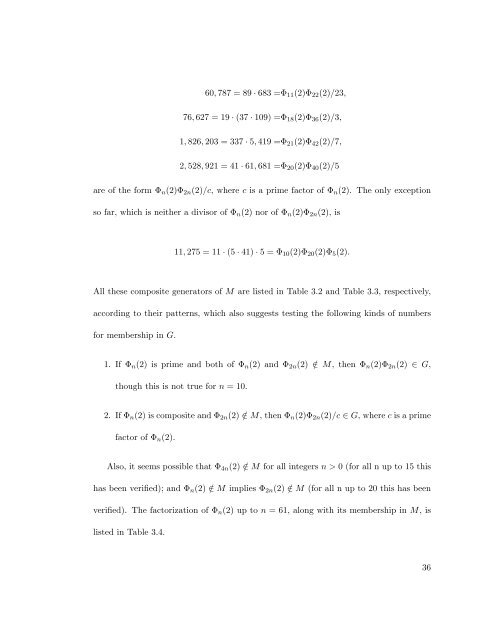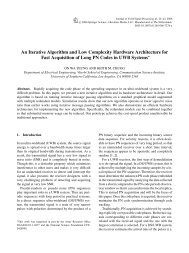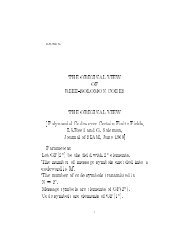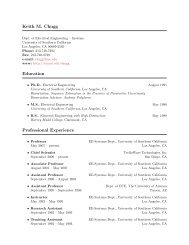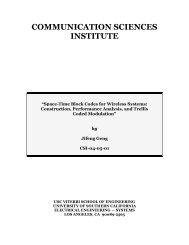Irreducible Polynomials Which Divide Trinomials Over GF(2). - The ...
Irreducible Polynomials Which Divide Trinomials Over GF(2). - The ...
Irreducible Polynomials Which Divide Trinomials Over GF(2). - The ...
- No tags were found...
Create successful ePaper yourself
Turn your PDF publications into a flip-book with our unique Google optimized e-Paper software.
60, 787 = 89 · 683 =Φ 11 (2)Φ 22 (2)/23,76, 627 = 19 · (37 · 109) =Φ 18 (2)Φ 36 (2)/3,1, 826, 203 = 337 · 5, 419 =Φ 21 (2)Φ 42 (2)/7,2, 528, 921 = 41 · 61, 681 =Φ 20 (2)Φ 40 (2)/5are of the form Φ n (2)Φ 2n (2)/c, where c is a prime factor of Φ n (2). <strong>The</strong> only exceptionso far, which is neither a divisor of Φ n (2) nor of Φ n (2)Φ 2n (2), is11, 275 = 11 · (5 · 41) · 5 = Φ 10 (2)Φ 20 (2)Φ 5 (2).All these composite generators of M are listed in Table 3.2 and Table 3.3, respectively,according to their patterns, which also suggests testing the following kinds of numbersfor membership in G.1. If Φ n (2) is prime and both of Φ n (2) and Φ 2n (2) /∈ M, then Φ n (2)Φ 2n (2) ∈ G,though this is not true for n = 10.2. If Φ n (2) is composite and Φ 2n (2) /∈ M, then Φ n (2)Φ 2n (2)/c ∈ G, where c is a primefactor of Φ n (2).Also, it seems possible that Φ 4n (2) /∈ M for all integers n > 0 (for all n up to 15 thishas been verified); and Φ n (2) /∈ M implies Φ 2n (2) /∈ M (for all n up to 20 this has beenverified). <strong>The</strong> factorization of Φ n (2) up to n = 61, along with its membership in M, islisted in Table 3.4.36


